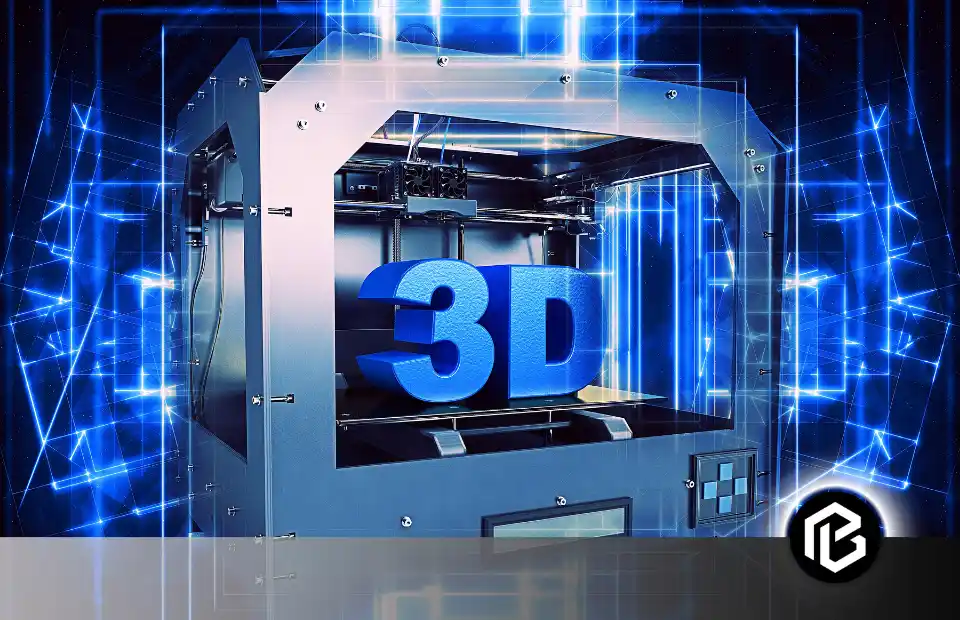Edge computing improves sustainability by reducing energy consumption, cutting down on data transmission, and helps in real time decision-making. In this Technological world, maintaining a sustainable environment is always challenging. But technology plays an important role in reshaping industries and lifestyles. One of the great technologies is called edge computing. This technology solves complex problems as well as enhances sustainability across various sectors. This technology is energy efficient and focuses on resource management and green industrial processes which are the needs of today’s lifestyle.
Enhancing Energy Efficiency through Edge Computing

Optimal Energy Utilization at the Edge
Edge computing is an advanced technological approach based on new innovative solutions with less consuming energy. With the help of edge computing, local processes allow devices to perform tasks at the edge of the network. It reduced the need for constant data transmission to centralized servers.
Local processing uses minimum energy in the data transmission to distinct data centres. When task execution becomes closer to the source, devices can conserve energy and they work more efficiently.
Edge Intelligence gives real-time data analysis which is generated at the edge. It allows dynamic resource management, which ensures minimum utilization of resources. This will help to reduce energy consumption and improve sustainability.
Edge computing allows intelligent load balancing to ensure the efficient distribution of resources. This reduces the risk of overloading on specific nodes. In this way, it minimizes energy waste and contributes to overall energy efficiency.
Edge Computing for Smart Energy Grids
In energy grids, edge computing plays an important role by offering great opportunities to enhance sustainability through real-time monitoring and management.
Edge computing gives an instant response to fluctuations in energy demand. It allows the implementation of a demand response service. This helps in balancing the energy grid and optimizing energy distribution.
With the help of edge computing, peer-to-peer energy trading becomes very easy and flexible. It promotes local energy exchange and reduces the dependency on centralized power sources. In this way sustainability approach becomes faster in the energy sector.
Advanced distributed edge sensors give real-time data on the status of the energy grid. It sends quick responses to potential disruptions. This improves grid resilience and increases reliability and sustainable energy supply.
Sustainable IoT Enablement with Edge Computing
Edge computing makes the Internet of Things (IoT) more sustainable by overcoming data transmission challenges and storage problems.
Edge computing enables local processing of IoT data which reduces the need for constant transmission of data to central servers. This saves energy as well as minimizes the environmental impact of data storage.
With edge computing, efficient sensor networks are used to monitor the environment. This helps to collect data on climate conditions, pollution levels, and other environmental factors. In this way, it supports sustainable practices efficiently.
This technology also increases data privacy and security with the localization of data processing. By reducing the centralized data centres, the risk of large-scale data breaches decreases. It promotes a more secure and sustainable IoT ecosystem.
Optimizing Resource Management through Edge Computing

Edge-Based Intelligent Waste Management
Edge computing transforms waste management processes through real-time monitoring and predictive analytics.
Edge-based systems monitor waste streams in real-time and provide insights into patterns and trends. Predictive analysis helps optimize waste management processes which reduce environmental impact.
Edge computing enables the dynamic optimization of waste collection routes based on real-time data. This ensures efficient resource utilization. It minimizes fuel consumption and contributes to sustainable waste management.
Automation powered by edge computing enhances waste-sorting processes. Intelligent algorithms can identify recyclable materials, leading to increased recycling rates and reduced landfill waste.
Edge Analytics for Sustainable Agriculture
Edge computing revolutionizes agriculture by enabling precision farming and sustainable practices.
Edge-enabled sensors collect data on soil conditions, crop health, and weather patterns. It allows precise and efficient farming practices. This reduces resource use and promotes sustainability in agriculture.
Edge computing facilitates real-time monitoring of soil moisture levels, enabling smart irrigation systems. This ensures optimal water usage, conserving a precious resource in agriculture.
Edge-based systems analyze data from sensors to detect early signs of crop diseases. This proactive approach enables timely intervention which minimizes the need for chemical treatments and promotes sustainable farming.
Augmenting Sustainable Transportation with Edge Computing
Edge computing plays a pivotal role in optimizing transportation systems for sustainability.
Edge computing enables real-time analysis of traffic patterns and improves dynamic route planning to reduce congestion as well as fuel consumption. This contributes to sustainable urban mobility.
Edge computing supports the development of intelligent charging infrastructure for electric vehicles (EVs). Real-time data analysis ensures efficient charging, promotes renewable energy integration and accelerates the adoption of electric transportation.
Edge computing is important for the success of connected and autonomous vehicles. Local data processing allows for quick decision-making, enhancing vehicle safety and efficiency, and contributing to sustainable transportation.
Facilitating Green Industrial Processes with Edge Computing

Edge-Based Process Monitoring and Optimization
Edge computing transforms industrial operations by providing real-time monitoring and optimization capabilities.
Edge-based sensors and analytics provide real-time insights into industrial processes. This allows for immediate identification of inefficiencies and opportunities for optimization, contributing to energy efficiency and sustainability.
Edge computing increases predictive maintenance through continuous monitoring and analysis of industrial equipment. This reduces downtime, extends the lifespan of machinery, and contributes to sustainable industrial practices.
Edge computing enhances industrial automation by enabling energy-efficient processes. Localized decision-making reduces latency and energy consumption, fostering sustainability in manufacturing.
Decentralized Edge Control for Smart Buildings
Edge computing transforms buildings into intelligent, energy-efficient entities.
Edge-enabled control systems optimize heating, ventilation, air conditioning (HVAC), and lighting based on real-time data. This ensures energy conservation in buildings and promotes sustainable practices.
Edge sensors monitor occupancy in real-time which allows dynamic control of lighting, temperature, and ventilation. This enhances energy efficiency in buildings and contributes to sustainable infrastructure.
Edge sensors increase building security by providing real-time monitoring and analysis. Additionally, they contribute to safety by detecting potential hazards, further establishing the role of edge computing in promoting sustainable building practices.
Sustainable Supply Chain Management with Edge Technology
Edge computing revolutionizes supply chain management and promotes sustainability through real-time tracking and analytics.
Edge technology enables real-time tracking of inventory and provides accurate demand forecasting. This minimizes excess inventory, reduces waste, and contributes to sustainable supply chain practices.
Edge analytics optimize logistics operations by providing real-time insights into transportation, warehousing, and distribution. This ensures efficient resource utilization and minimizes the environmental impact of logistics.
Edge-enabled tracking systems ensure traceability throughout the supply chain, minimizing waste and reducing the carbon footprint. This contributes to the development of circular economies and sustainable business practices.
Conclusion
Edge computing is an advanced technology that transforms and revolutionizes industries as well as increases sustainable development. It can process data locally, make real-time decisions, and optimize resource utilization positions.
It contributes to energy efficiency, resource management, and industrial processes which offers a great new way to sustainability and provides new possibilities for a more green-friendly environment.
Frequently Asked Questions on edge computing
How does edge computing contribute to energy efficiency?
Edge computing saves energy by processing data nearby instead of sending it far away, reducing the energy needed for data transmission and helping manage resources better.
Can edge computing help in reducing environmental impact in agriculture?
Yes, edge computing helps agriculture by making farming precise and efficient. It reduces chemicals, optimizes resource use, and promotes sustainable farming practices.
What are the security implications of utilizing edge computing for sustainability purposes?
Using edge computing for sustainability improves data privacy and security. Data is processed locally, lowering the risk of big data breaches. However, it’s essential to use security measures like encryption and authentication.
Is edge computing applicable for small-scale enterprises or only for larger industries?
Edge computing works for both small and big businesses. It can be used in various applications, from small devices to large industries, making decision-making faster and more efficient for all sizes of enterprises.
How can edge computing enhance the circular economy and sustainable supply chains?
Edge computing helps make supply chains more sustainable by providing real-time tracking and analytics. This ensures resources are used efficiently, waste is minimized and environmental impact also reduced. It promotes circular economies and sustainable business practices.





